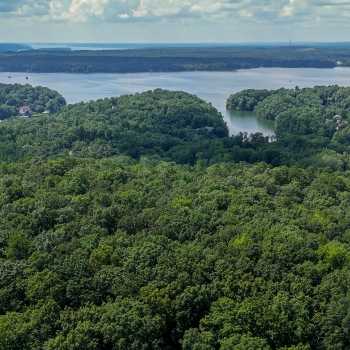Why Putnam County Tennessee Land Attracts Buyers
Putnam County blends agricultural productivity with access to modern infrastructure, drawing buyers who want both self-sufficiency and convenience. The land is well-suited for hay production, cattle operations, and row crop farming. Bottomlands near riverbeds provide fertile soil, while higher ground supports timber and recreational use. The county’s central location and access to Cookeville make it appealing for part-time residents and investors alike.
This region supports a range of property types, from pasture-ready acreage to hardwood tracts perfect for timber harvest or hunting leases. Many tracts lie within reach of major state parks, adding long-term conservation value. With a steady demand for local produce and livestock, the ag economy here remains viable. Remote landowners appreciate the balance of rural privacy and small-town services, while full-time farmers take advantage of contract poultry, hay sales, or grazing leases. Whether you’re looking for investment acreage or a weekend base camp, Putnam County offers land options that can work now and hold value long-term.
Natural Features That Make Putnam County Land Appealing
Putnam County’s landscape is defined by limestone escarpments, hardwood valleys, and spring-fed creeks. The Cumberland Plateau drops into deep coves and hollows that remain shaded and cool even in midsummer. These natural formations provide both scenic and practical value for buyers looking to hunt, hike, or live off-grid. Public lands and river corridors enhance ecological diversity and offer long-term protection from overdevelopment.
Burgess Falls Gorge
This state park preserves steep canyon walls and waterfalls that drop over 130 feet. It’s a natural anchor point for conservation-minded landowners and a scenic draw for the region.
Falling Water River
Flowing through Putnam County, this river supports native fish species and offers strong recreational appeal. Many rural properties back up to feeder creeks or view corridors tied to this watershed.
Cumberland Plateau Edge
Putnam sits on the transition zone where the plateau drops to lower elevations, creating bluff overlooks, mixed hardwoods, and prime wildlife habitat across multiple elevations.
Hay, Cattle, and Timber Investment Land in Putnam County
Putnam County supports small to mid-size farms that specialize in hay production, pasture rotation, and managed timber. Most tracts are family-operated with lease potential for absentee landowners. Fertile creek bottoms and sloped uplands provide options for grazing or planting, while managed timber parcels remain a strong long-term investment. Poultry is present but more common on neighboring counties' industrial operations. This region favors adaptable land use strategies and offers a good return for working farms or passive investment.
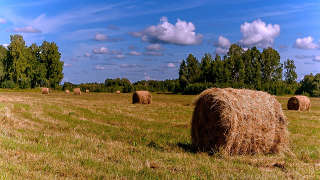
Hay Production
Most farms produce fescue or mixed grass hay, with square and round bales sold to regional cattle operators. Upland fields allow for multiple cuttings per season, especially when rotationally fertilized. Hay land is typically leased out at modest rates for absentee owners or cut in trade agreements with local farmers.
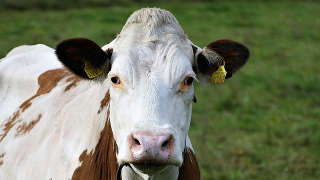
Cattle Grazing
Cow-calf operations dominate pasture land use in Putnam. The terrain supports good forage management, and water access from springs or ponds is common. Many owners combine pasture with hay fields to maintain winter feed stability. Grazing leases provide steady seasonal income to nonresident landowners.
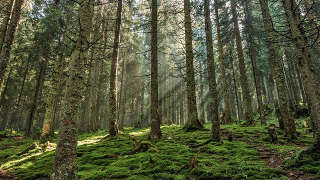
Timber Land
Hardwood stands include white oak, hickory, and poplar. Many tracts are selectively harvested on 10–15 year cycles. Timberland appeals to investors who want long-term growth with minimal active management. Properties with road frontage and marketable trees can offer solid returns through thinning and sawtimber sales.
Hunting and Wildlife Opportunities in Putnam County TN
Putnam County’s blend of forested ridges, pastures, and waterways creates habitat for a wide range of species. Hunters target turkey, bobcat, coyote, and migratory birds. The Cumberland River watershed and state parks add protected corridors that support everything from box turtles to bald eagles. Fishing is active in local rivers and reservoirs, including excellent smallmouth and catfish access at nearby Center Hill Lake.
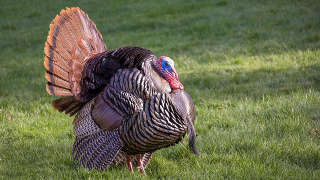
Turkey
Eastern wild turkey are common in open hardwoods and mixed pasture edges. Spring gobbler season brings strong local interest, and success rates are above average across Putnam.
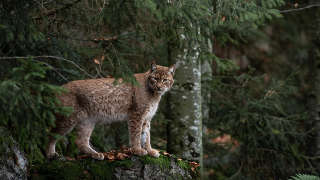
Bobcat
Bobcats are present in most wooded tracts, especially near bluff ridges and thick cover. They are legal to hunt in season and increasingly seen by trail cameras and landowners.

River Otter
These semi-aquatic mammals have returned to local creeks and streams, offering a sign of healthy watersheds. While not typically hunted, they appeal to nature-focused landowners.
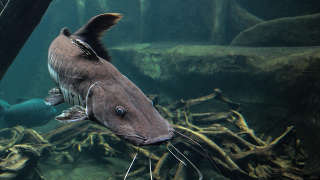
Fishing
Putnam’s rivers offer some of Tennessee’s best smallmouth bass fishing, along with catfish, trout, and hybrid striped bass in lakes and reservoirs. Public boat ramps make it accessible.
Putnam County Offers Rural Privacy with Urban Access
What sets Putnam County apart is its connection to both working land and higher education. Tennessee Tech University draws a stable population of students, researchers, and agriculture professionals. Cookeville’s role as a regional hub means better hospitals, broadband options, and ag extension services, even on the county’s outskirts. That balance appeals to buyers who want to live quietly on 40 acres but still have access to good coffee and decent health care 20 minutes down the road.
Rural Land in Nearby Tennessee Counties
If you’re looking at land in Putnam County, you may also want to consider nearby counties with similar landscapes and land uses. Each offers a slightly different mix of timber, pasture, and recreational appeal within short driving distance.
Overton County
Known for its hardwood timber and bluff tracts, Overton offers affordable rural acreage northeast of Cookeville. The area sees steady hunting land demand.
White County
Just south of Putnam, White County features row crop acreage, river tracts, and scenic limestone formations that appeal to retreat buyers and farmers alike.
Jackson County
Northwest of Cookeville, Jackson County offers river bottomland and low-cost wooded parcels perfect for seasonal use or long-term timber holding.

